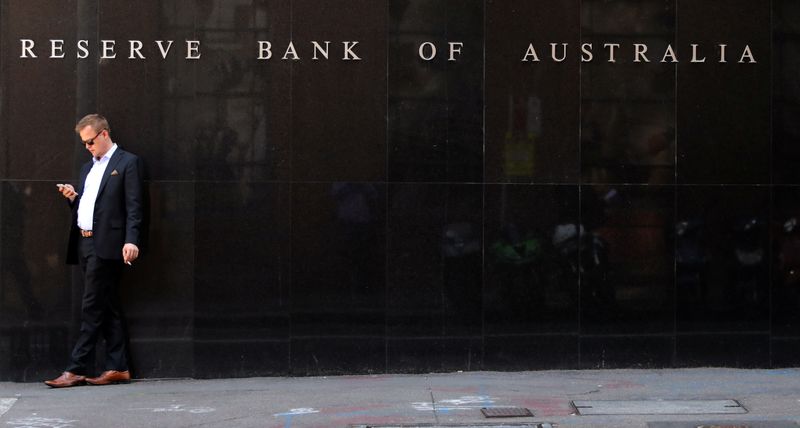By Swati Pandey
SYDNEY (Reuters) - Australia's central bank on Wednesday raised the bar for further easing in monetary policy, saying it would consider cutting interest rates if the unemployment rate moved higher and inflation stayed tepid.
The unemployment rate eased to 5.1% in December while the latest data showed inflation had ticked higher in the final quarter of last year, implying no urgency to lower rates for now.
"It's possible that interest rates could come down but I’m hoping that does not happen," Reserve Bank of Australia (RBA) Governor Philip Lowe said in Sydney, responding to questions from journalists.
The Reserve Bank of Australia (RBA) slashed its cash rate three times last year to an all-time low of 0.75%. At its first meeting of 2020 on Tuesday, it sat on its hands while sounding doggedly upbeat about the economic outlook.
"It is possible to have a period of stability" on interest rates, Lowe added signaling a neutral bias on policy.
The remarks were enough for investors to push back the probability of interest rate cuts this year while three-year bond yields (AU3YT=RR) jumped nine basis points from an all-time low to reach 0.71%.
Financial futures are now pricing in a full 25-basis-point cut in August from June earlier while there is only a one-in-five chance of a second cut later in the year.
"It seems that having taken interest rates to a record low, the RBA is very much back in the mode of being patient rather than doing more to push unemployment down faster," ANZ economist David Plank said.
"This potentially pushes the timing of the next rate cut out considerably," he added.
Plank stuck to his forecast for a cut in April, saying the risks to the economy from raging bushfires at home and a fast spreading virus in China were "very much to the downside."
The RBA estimated the fires will shave around 0.2 percentage points off gross domestic product growth across the December 2019 and March 2020 quarters though an expected pick-up from rebuilding later in the year would help the economy.
Lowe identified the coronavirus outbreak as a new uncertainty hanging over the outlook, although he said it was too early to gauge the overall impact.
For now, the RBA kept its forecasts for GDP growth intact, predicting a 2.75% expansion over this year and 3% next year.
Lowe said the board is "continually" looking at the benefits as well as the costs and risks associated with very low interest rates.
"If the unemployment rate were to be trending in the wrong direction and there was no further progress being made toward the inflation target, the balance of arguments would change," he said.
"In those circumstances, the Board would see a stronger case for further monetary easing," Lowe added.

The RBA will release its updated quarterly economic outlook on Friday when Lowe and other senior RBA officials will be grilled by lawmakers in parliament.